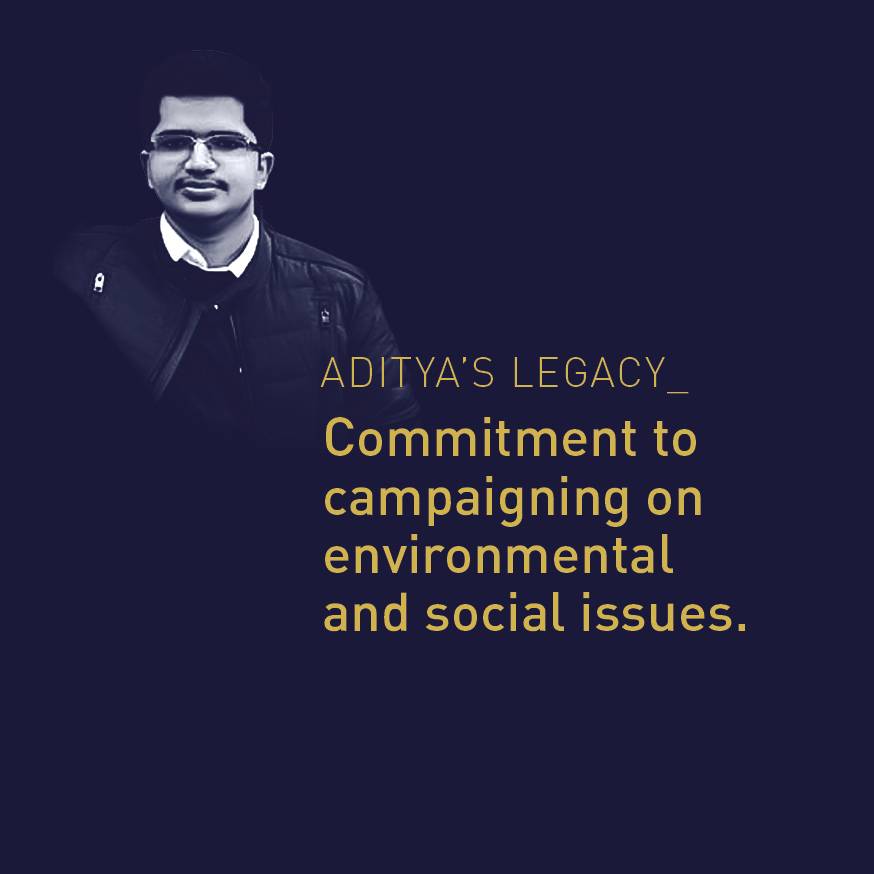During the course of the award ceremony, we had a sponsored trip to London where we attended various workshops and met wonderful people. It was a wonderful experience altogether…reports Asian Lite News.
Eighteen-year-old climate activist Aditya Dubey’s continuous effort to fight off Delhi’s air pollution problem as a citizen led to the promulgation of the Commission For Management Of Air Quality (CAQM) in the national capital and its adjoining areas besides making him eligible to win the prestigious Diana Award this year.
Established in 1999, the Diana Award, named after Princess of Wales — Diana, honours young people who work to improve the lives of others.
In an exclusive interview, Aditya — one of the 20 young changemakers to bag the honour, talked about his journey, the award, climate movement and how it could become more inclusive.
Excerpts from the interview:
Tell us about your journey to the Diana Awards and what has changed since then?
It is a great honour that the judges found me worthy of carrying on her (Princess Diana’s) legacy of social service forward. Much grateful for that.
During the course of the award ceremony, we had a sponsored trip to London where we attended various workshops and met wonderful people. It was a wonderful experience altogether.
Now, my words will have more weightage. For example, earlier people used to listen to me as a teenager but now maybe they will, in the sense of the legacy award, take my word in more regard so that we can work even better on environmental issues.
What led you to become a climate activist in the first place?
So, it all started in 2016 because of the air pollution crisis in New Delhi and National Capital Region (NCR) because it has been very bad over the past few years and I saw people facing respiratory problems due to the same. I, too, am suffering from sinusitis and asthmatic cough. Then people started wearing masks. That’s when we started staging protests and insisted that the government does something about it. However, when I felt that no heed was being paid to our demands, I moved the Supreme Court with my fellow petitioner Aman Banka seeking a direction to the government to take measures to solve the air pollution crisis.
Last year, it led to the promulgation of the CAQM. However, since the air quality level has been very horrible this year so the hearings are going on weekly due.
You had also started some campaigns like ‘Plant a Million Trees’ and ‘No Car Sundays’. What is the present-day status of these initiatives?
My first campaign was the ‘Plant a Million Trees’ initiative which had started with the aim of planting a thousand trees but then I became too arrogant and increased the target to a million trees. Now I have a goal to plant a million trees within the next year and till now we have planted 1,88,000 trees.
Another campaign called ‘No Car Sundays’ works on ways to encourage people to use public transport instead of a car on Sundays. It has been going on for a few months now where we regularly hold events in which people can cycle together.
As an 18-year-old climate activist, did you face any kind of challenges during your campaigns?
Because of my age, I have not been taken seriously. Even the government did not listen to us or paid attention to our protests as environmental issues are not voting issues right now. That is why we had to approach the Supreme Court.
Having said that, I will not blame any one government for the poor condition of air in Delhi. State governments of Haryana, Punjab, Uttar Pradesh and the central government are equally responsible for not coordinating to find a common solution to the problem of stubble burning. We cannot blame farmers for burning the crop residue in the absence of an alternative. This is where the government should step in and give incentives to the farmers, provide stubble burning machines to them etc.
Have you been following the global climate strike? What differences have you noticed in the climate movement in India and those taking place in other parts of the world?
I have worked Fridays for Future (FFF) and Extinction Rebellion. We regularly held protests on Fridays, but to our dismay governments are not doing anything to address this crisis. In our culture, the environment is held in high regard, however, it is not given the due respect or attention by the governments. If we look at the present-day situation then Covid-19 is just a warning as to which level of destruction can take place due to climate change in the future. Also, there is no economic benefit in not dealing with climate change either. Look at the amount governments have to spend in the relief and rehabilitation of those affected by floods, cyclones, storms etc. There is an economic advantage in solving the climate crisis and those steps need to be taken urgently.
We are also in touch with a few Members of Parliament (MPs) and we are hoping to bring in a climate change law in the near future.
As for the differences in climate movement, in the developed parts of the world, governments listen to the masses. Here, the same is not the case. For example, look at the crores of money spent on the installation of smog towers in Delhi which are very ineffective. I believe that if the problem of air pollution becomes a voting issue only then something can be done about it.
As a climate activist, how inclusive do you think the climate movement in India is?
The climate movement in India is mostly restricted to the cities that is why it is being led by the privileged section of society. The lack of awareness is among the topmost reasons, why it is not inclusive of all the classes and communities in India.
ALSO READ-Climate change threatens rice production

Leave a Reply